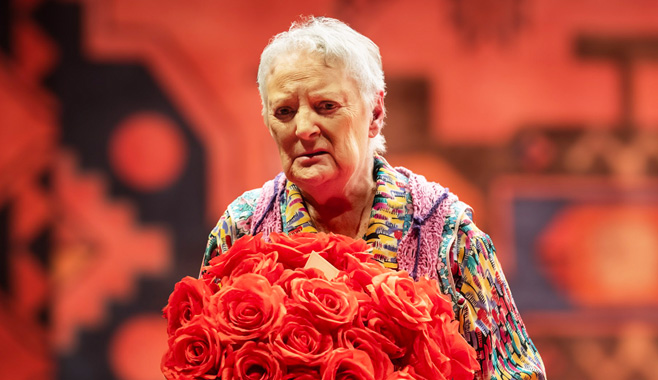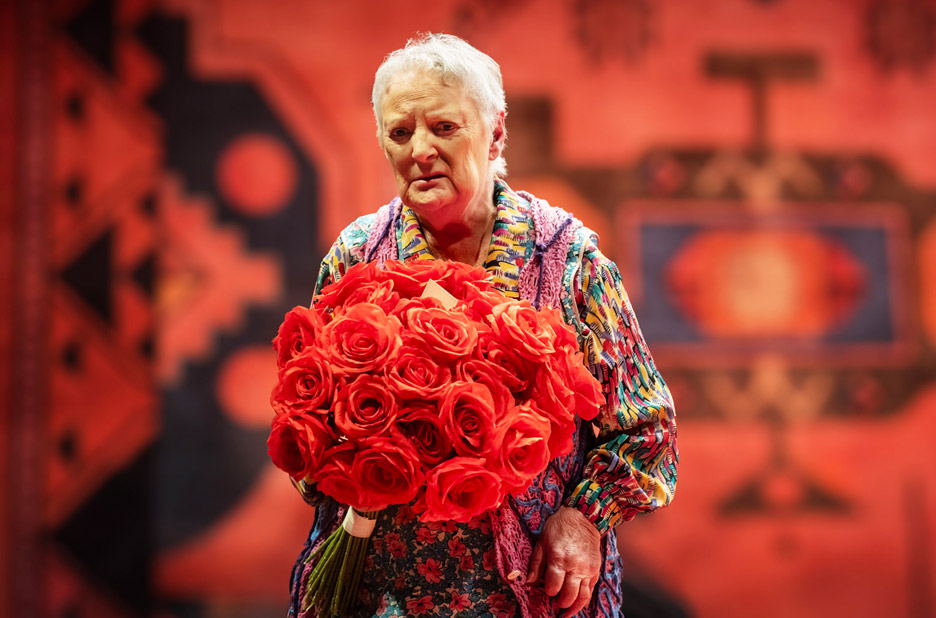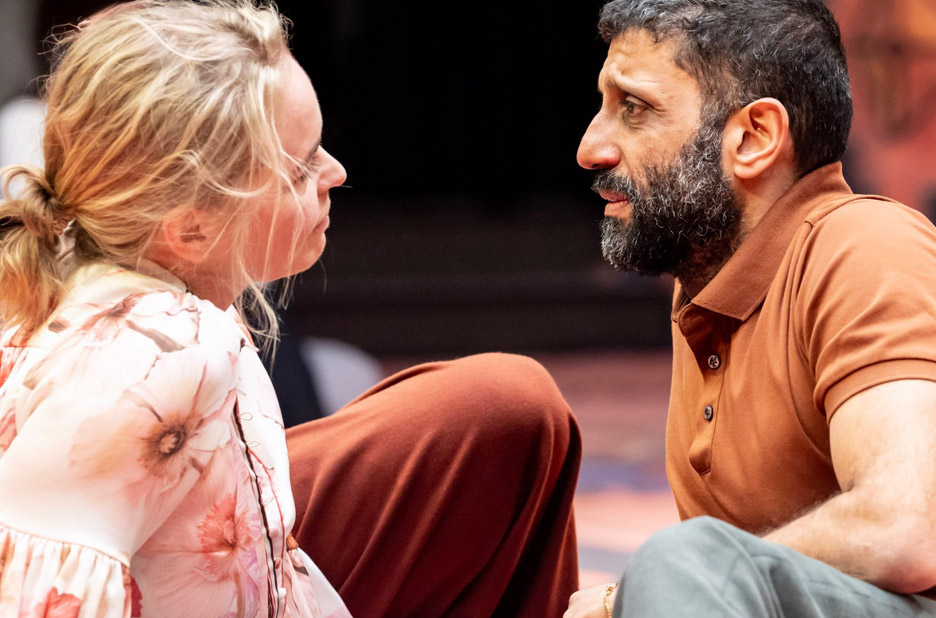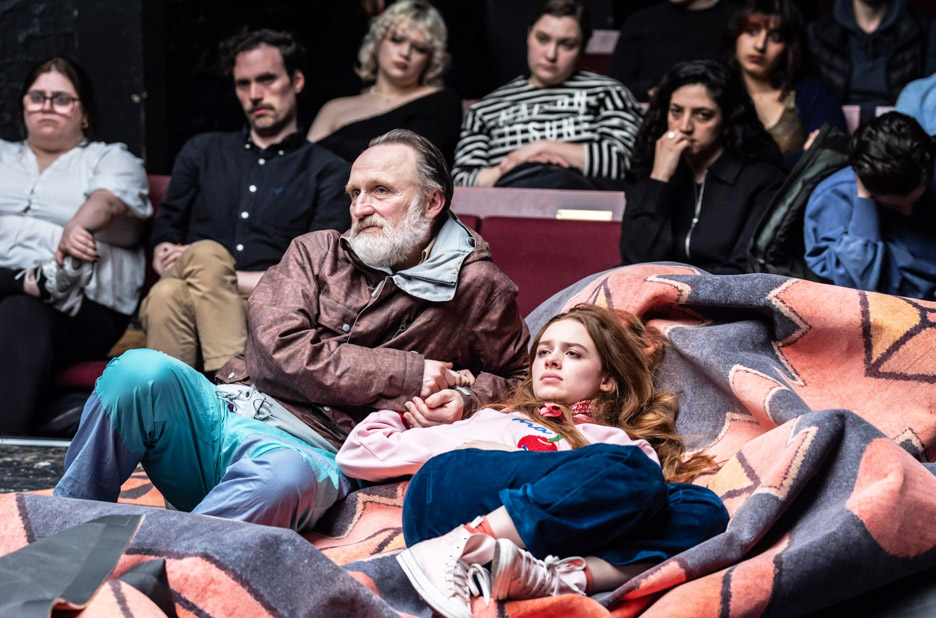Theatre
The cherry orchard
Donmar Warehouse, London
5/5
A perfect classic
Donmar’s production is a masterclass in how a classic play can be experimented with without losing any of its essential features, strengths and recognisable moments which draw audiences to see it again. It was Nina Hoss’ presence on the cast list that attracted me to book tickets. I have seen her in a play for the first time during lockdown in a streamed production of Yasmina Reza’s Bella figura by Berlin’s Schaubühne. I knew of Nina Hoss before having appreciated her in many films, but seeing her in a play was a revelation. It was exciting to see her make her London debut in The cherry orchard. She is a superb theatre actor and did not disappoint.


Her Ranevskaya is not haughty, only naïve and lost as a product of her background, and irretrievably hurt by the loss of her child. She is innocently positive, classy, but narcissistic and very much aware of her attractiveness to others. Nina Hoss was part of a fantastic ensemble. They all excel, but I would like to particularly mention June Watson who plays Firs, manservant in the play, who has the last word and who breaks our heart, Sadie Soverall who sensitively plays Ranevskaya’s daughter, Anya, and Adeel Akhtar who plays Yermolai Lopakhin, a descendant of serfs who has made his fortune but has an ambivalent relationship with the estate and its inhabitants, and ends up buying the orchard. From a voice of reason at the beginning of the play to a debauched vindictive lout at its end, Adeel Akhtar injects a London working class spirit to his interpretation, particularly in the scene of celebration where he revels in excess and reveals messy feelings he has lost control of.

The casting ticks all the diversity boxes, we have women and men, young and old (Chekhov easily allows for that), actors of black and Asian background, a disabled actor, even a woman playing a man’s role, and they all excel which shows casting with diversity in mind does not have to result in compromises in quality, as can often be the case. Quite the opposite the diversity gives the production additional strength, variety and interest.
Benedict Andrews has masterfully adapted the play to resonate with modern audiences. The dialogue is effortless yet meaningful. His staging is also excellent. The costumes and scenery are a deliberate mix of styles which belongs to different eras, the only uniting feature a seemingly careless combination of maximalist, colourful and at times rustic items. This is somehow sufficient to suggest the spirit of the Russian provinces at the turn of the 20th century.
Audience participation is not something I cherish. I never sit in the first row for two reasons, danger of audience participation, and danger of damage to health or possessions due to overeager staging (artificial fog which makes me choke for long minutes which feel like hours, or splashed water in aquatically-inspired productions – they happen more often than you think). However, Benedict Andrews introduces a form of very gentle audience participation which is done with a lovely sense of moderation. The actors sit within the audience until it’s time to come on stage, they look audience members in the eye when they talk, even interact with an audience member who is appointed to be the honorary bookcase for the evening. I believe they prep the chosen lamb in advance as there was no trauma visible on the evening I attended. In fact I’d like to finish by saying two things: ‘All Russia is our orchard’ and ‘dear old bookcase’.
